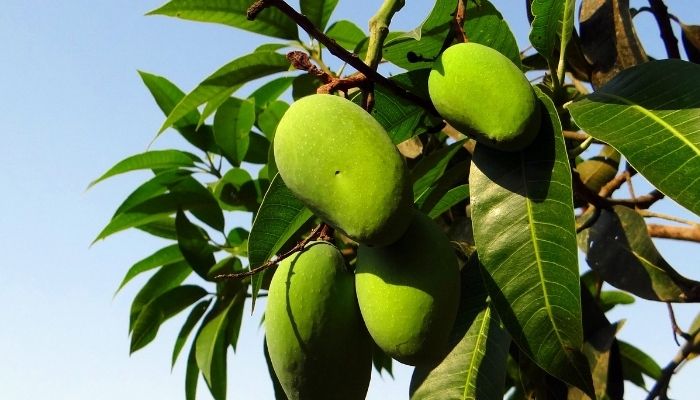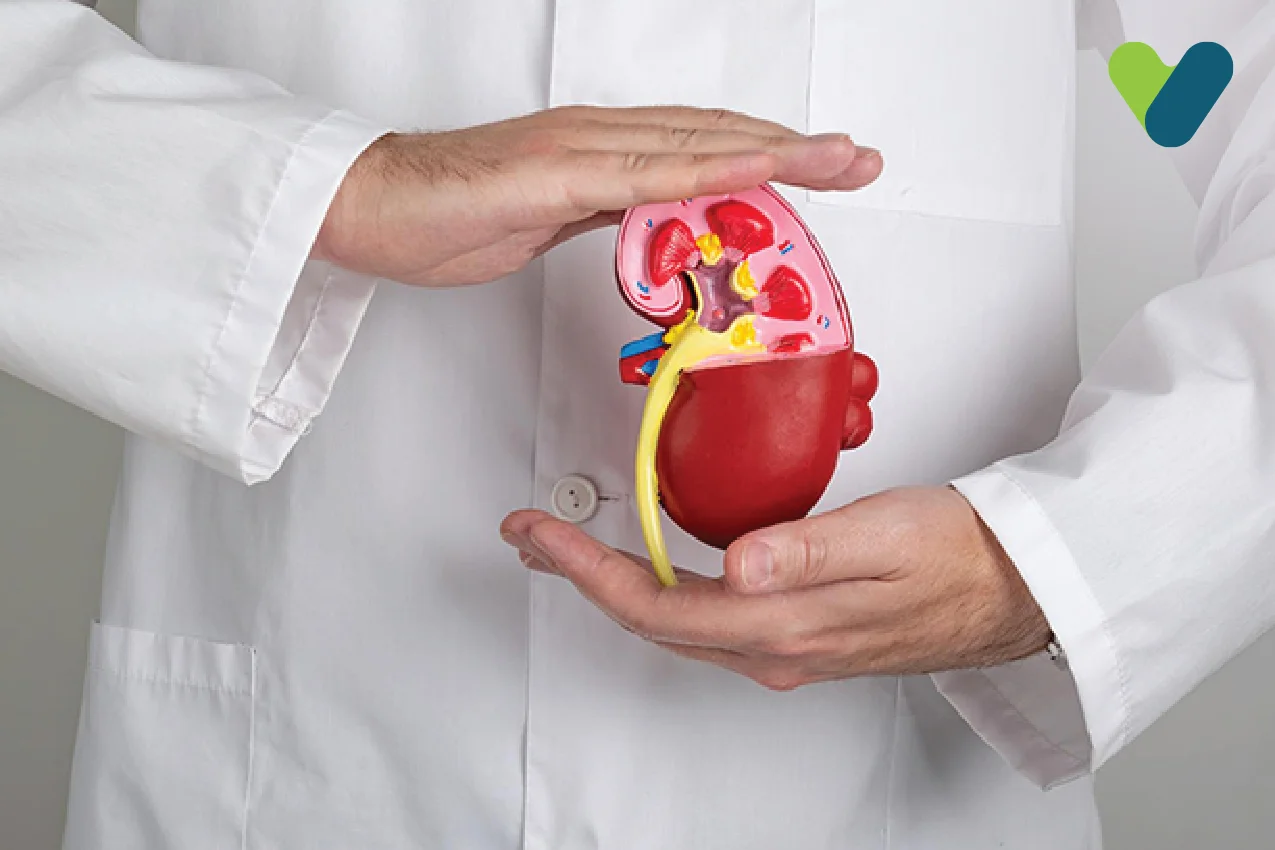Benefits Of Mango Leaves
Mango, which each one of us loves to consume, is called the King of fruits. But, do you know, even its leaves contain numerous health benefits? This might sound rather odd to you and probably does not sit well with many of us, but once you read about the Mango leaves benefits, you will not just wait for the mango tree in your backyard to give you the sweet mangoes but will make use of its leaves as well.
Mango leaves have a lot of uses in medicine, and they are easily accessible all year round, especially because they do not fall from the trees like the fruits do. These reddish leaves with a purple tint are a power bank of super nutrients that you would hardly ever imagine. They are rich in flavonoids and such compounds as phenols. These leaves have been cultivated for the past thousand years and are believed to have been brought to Southeast Asia by the Buddhist monks, and people have been using the products derived from these leaves.
What are Mango leaves useful for ?
Let us read more and discover more healthy uses of mango leaves and also learn the different uses of mango leaves.
Mango Leaves Benefits – Nutrition Fact Sheet
You may know that mangoes are rich in sodium, potassium, iron, Vitamin C, magnesium, and many other nutrients. But did you know that mango leaves are no less when it comes to the nutritional count? Here is a list of nutrients that are found in mango leaves that make it a wonderful leaf to have in a tea form.
Let’s check the list of nutrients found in mango leaves:
- Vitamin A
- Vitamin B
- Vitamin C
- Flavonoids
- Phenols
- Antioxidants
- Tannins
Mango Leaf Medicinal Uses
Mango leaves have been used in traditional medicine for many years and offer several health benefits. One of the primary mango leaf benefits is that they help regulate blood sugar levels by improving insulin production and glucose distribution. Their anti-inflammatory and expectorant properties promote respiratory health, aiding conditions like asthma and cough. Mango leaves also support digestive health by managing disorders like stomach ulcers and diarrhea. The next mango leaf benefits will amaze you. They assist in weight loss by boosting metabolism and breaking down fats. Additionally, mango leaves enhance skin health, reduce inflammation, and provide antioxidants that protect cells from damage.
Let us read more and discover more healthy uses of mango leaves and also learn the different uses of mango leaves.
12 Incredible Health Benefits of Mango Leaves
The goodness of mango leaves can help you in different ways. Listed below are some of the prominent benefits of mango leaves:
1. Treats Gall and Kidney Stones
First and foremost, one of the major mango leaves benefits is that they are good for gall and kidney stones. If these leaves are consumed in a powdered form daily, it can help break the toughest of gall bladder and kidney stones within no time.
2. Lower Down Blood Pressure
The second principal health gain of using mango leaves is that you can keep the blood pressure issue in your control. For instance, mango leaves help lower blood pressure and hypertension in patients with high blood pressure.
Some properties found in these leaves help to strengthen the blood vessels and even treat varicose veins.
3. Boasts of Anti-Inflammatory Properties
Something else that must be put into consideration is that mango leaves possess anti-inflammatory properties. It makes up a perfect solution to treat skin inflammation of any type in a completely safe manner.
4. Makes Your Skin Healthy
Up next, mango leaves benefits for skin is that the use of mango leaves can also make your skin healthy and flawless. 
The extract of these leaves helps to reduce signs of aging and it is mainly due to a rich antioxidant content present in these leaves.
5. Good for Hair
Likewise, you will be astonished to know that mango leaves are beneficial even for your hair. Benefits of mango leaves for hair are innumerable. There are some constituents in mango leaf extract that people believe help hair growth.
This may be the reason that many hair products today also contain mango leaves as one of the main ingredients.
6. Natural Diabetes Fighter
On the other hand, another surprising benefit of mango leaves is that it is a natural treatment against diabetes. When dried and powdered, these leaves can treat diabetic retinopathy and diabetic angiopathy. This may be the reason that many hair products today also contain mango leaves as one of the main ingredients.
7. Traces of Anti-Cancer Properties
Mango leaves contain compounds with anti-cancer properties. It prevents several types of cancers because it does not permit the formation of hazardous cancer cells.
8. Helps Treat Stomach Ulcers
It would not be an exaggeration to say that mango leaves are almost like a stomach pacifier. They are beneficial in treating stomach ulcers to a large extent.
For this, all you have to do is consume mango tea on an empty stomach, and your stomach problems will disappear.
9. Cures Restlessness and Anxiety
All those who have been looking for several other benefits of mango leaves related to health must also know that these leaves can cure anxiety and restlessness.
These leaves contain a phytochemical called mangiferin that has been shown to have potential anti-anxiety effects.
10. Prevents Obesity
There are surprising benefits of mango leaves for weight loss. Some studies have revealed that extract found in mango leaves helps to reduce the fat deposits in a person’s body.
11. Increases Libido
Mango leaves contain vitamin E which is a sex hormone and it helps in increasing the sexual drive. Benefits of mango leaves sexually can help individuals improve their sex life.
12. Mango Leaves Benefits For Teeth
Mango leaves have surprising benefits for teeth and oral health. They can whiten teeth, help maintain healthy gums, freshen breath, and strengthen tooth enamel. People often use fresh mango leaves as a natural toothbrush. Adding mango leaves into your oral care routine can support overall dental health.
Benefits Of Mango Leaves Sexually
Mango leaves are often seen as a by product of the tropical fruit but are gaining attention for their health benefits especially in traditional medicine. Among many uses, mango leaves are believed to be good for sexual health and complement the well known aphrodisiac properties of mango fruit itself.
The sexual health benefits of mango leaves are attributed to its ability to improve blood circulation, regulate blood sugar and boost energy levels all of which are important for sexual function. Also these leaves have rejuvenating effects that can improve physical and mental vitality and can increase libido and address sexual health issues.
Good blood circulation is important for sexual health and mango leaves have flavonoids and polyphenolic compounds that can stimulate blood flow and improve vascular health. This is beneficial for those who have sexual dysfunction due to poor circulation. Good blood flow ensures that reproductive organs get enough oxygen and nutrients which are needed for arousal and sexual performance.
Mental well being also affects sexual health. Stress and anxiety can lead to decreased sexual desire and poor performance. Mango leaves have calming properties and have been used traditionally to lower stress and promote relaxation. They have compounds that can balance hormones and reduce anxiety so individuals can have sexual activity more freely and effectively and their anti-inflammatory properties can alleviate physical symptoms of stress.
For those with diabetes or hormonal imbalances, mango leaves can be very beneficial. They have hypoglycemic properties that can regulate blood sugar levels and prevent sexual health issues caused by high blood sugar. Also they support enzyme production that is important for hormonal balance and can ease symptoms of hormonal fluctuations in women.
Mango leaves can also boost energy and stamina because of its rich vitamin and mineral content. By increasing overall vitality they can sustain energy during sexual activities which can improve performance and pleasure.
Mango leaves are natural aphrodisiacs believed to stimulate sexual desire by balancing body’s essential nutrients. They can be consumed as tea, powdered or used with other herbs in traditional remedies for sexual health.
To use mango leaves for sexual health drink mango leaf tea by boiling fresh leaves in water. Regular consumption can lead to better circulation, balanced hormones and increased energy.
Mango Leaf Tea Benefits
Now that you have gained sufficient knowledge about the various surprising uses of mango leaves, it is obvious for you to be curious to know how to use these miraculous leaves? Out of all the methods of taking mango leaves to obtain all the aforementioned health benefits, consuming it in the form of tea is one of the most effective ways.
Mango leaf tea offers many health benefits. It is rich in vitamins A, B, and C, which support general health. The leaves have anti-inflammatory properties that reduce body inflammation. Traditionally, this tea helps manage diabetes by improving insulin and glucose levels. It promotes digestive health by aiding digestion and protecting the stomach lining. Additionally, it supports respiratory health, boosts the immune system, aids in weight loss by enhancing metabolism, and promotes healthy skin. Incorporating mango leaf tea can provide these benefits.
How To Make Mango Leaf Tea
For this, just boil 10-12 mango leaves in about 150 mL of water or use mango leaf tea bags, and you are done!
It is also possible to make powder from mango leaves: wash the leaves, dry them and grind them in a mixer. To ensure that this powder has a longer shelf life, it is recommended that it be stored in an air-tight container. You may also wish to buy the powder of mango leaves from ayurvedic clinics. Some people also prepare a paste of clean, freshly sourced mango leaves to use as a hair mask.
The Bottom Line
Why is it surprising that mango, the fruit itself, is not just great, and even the tree’s leaves are helpful to mankind?
Available all around the year, mango leaves are also known as Mangifera Indica in botanical terms. Medicinal benefits of mango leaves have been appreciated by Ayurveda for centuries, but the common man has just now started realizing its various health benefits.
The simplest way to consume it is to make herbal tea or take it in a powdered form. However, with time, you will be happy to see the change as it should if you have tried it once.
However, it is also vital to remember that consuming mango leaves in a powdered form or preparing its tea is a natural home remedy that treats affected individuals effectively.
[wp-faq-schema title="Mango Leaves Benefits - FAQs" accordion=1]
Reference
- Mango (Mangifera indica L.) Leaves: Nutritional Composition, Phytochemical Profile, and Health-Promoting Bioactivities. National Library of Medicine[Internet].
- https://www.ncbi.nlm.nih.gov/pmc/articles/PMC7920260/ .Accessed Apr. 15, 2023.
- Ali, Bashir Alabi, Abdullahi Attah Alfa, Kokori Bajeh Tijani, Egbeja Tsobaza Idris, Umar Sabdat Unoyiza, and Yahaya Junaidu. 2020. “Nutritional Health Benefits and Bioactive Compounds of Mangifera Indica L (Mango) Leaves Methanolic Extracts”. Asian Plant Research Journal 6 (2):41-51. https://doi.org/10.9734/aprj/2020/v6i230126.
- Health Benefits of Mango (Mangiferaindica L) and Mangiferin. Japan Journel of Medicine[Internet].
- https://japanjournalofmedicine.com/health-benefits-of-mango-mangiferaindica-l-and-mangiferin/ .Accessed Apr. 15, 2023.
- 10 Emerging Benefits of Mango Leaves. MedicineNet[Internet].
- https://www.medicinenet.com/emerging_benefits_of_mango_leaves/article.htm .Accessed Apr. 20, 2023.









